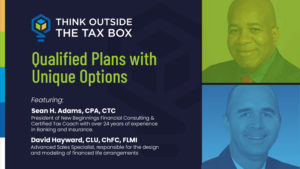
Live Webinar Event: Qualified Plans with Unique Options
The IRS is deploying technology and big data to combat compensation under-reporting. What does this likely mean for you and your S Corps? That Reasonable Compensation challenges will likely occur outside the traditional exam process. A challenge may come from the ongoing Employment Tax Program or the recently launched CIP.
From our polling, we find most tax advisors and their S Corp clients are dangerously unprepared for an IRS reasonable compensation challenge. If you are working with S corps, here’s the news you need to know…












